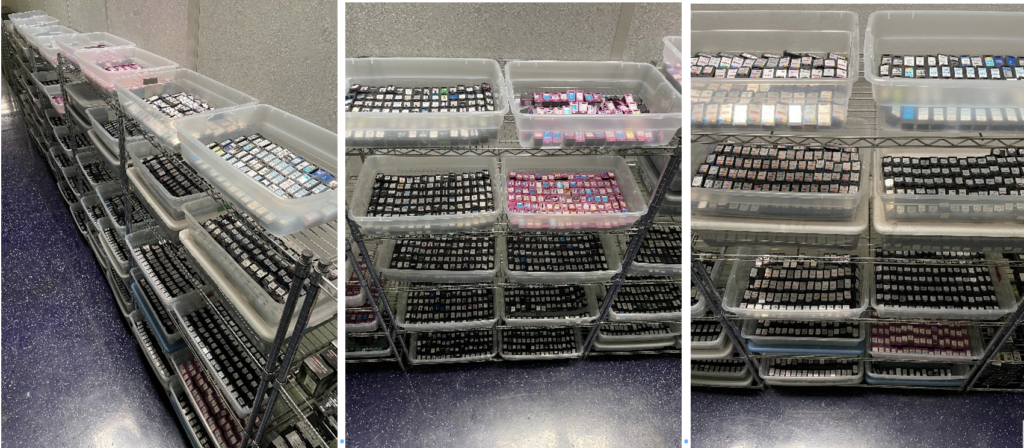On September 13, Planet Green Cartridges shared more information about why it filed a $500 million false-advertising lawsuit against Amazon (see “Planet Green Sues Amazon for a Whopping $500 Million”). The Chatsworth, CA-based company, which was founded in 1999 and describes itself as “ one of the last remaining printer cartridge recyclers and remanufacturers in the U.S.,” also offered a warning for distributors and resellers that market remanufactured cartridges or those labeled with recycling logos: you had better be able to back up your claims.
Planet Green’s statement is as follows:
“Enough is enough,” declares Planet Green’s CEO, Sean Levi, asserting the right to fair competition in the marketplace.
In a daring and bold move, Planet Green unleashed a colossal $500 million lawsuit against Amazon, aiming to expose the dark underbelly of the aftermarket printer cartridge industry. It’s a battle against the shadows, where overseas imports masquerade as eco-friendly products while secretly peddling counterfeit ink cartridges under the guise of being “remanufactured,” (read complaint).
Within the complaint there is an array of evidence revealing how non-OEM clone printer cartridges operate in the shadows, manipulating truth, and misleading consumers with their false “remanufactured” claims. These imported illicit brands primarily for HP 61, 62, 63, 64, 65, 67 series and Canon 210, 211, 240, 241, 245, 246, 260, 261, 275, 276 printhead cartridges audaciously misuse recycling logos and make unsubstantiated environmental lies, all in brazen defiance of U.S. law.
The importation of these illicit non-OEM clone cartridges doesn’t stop with Amazon; they appear on other online ecommerce platforms, as well as filter into the marketplace as private-label products through unscrupulous resellers and distributors.
Thousands of counterfeit clone printhead cartridges for HP and Canon falsely labeled as remanufactured are obtained by Planet Green for evidence.
Levi elaborates, “For years, we’ve diligently tracked various cartridge brands through our cartridge collection program, conducting test purchases across the internet to verify remanufacturing claims. Amazon emerged as the largest marketplace, prompting us to address the rampant issue with them and appealing for action—all to no avail. Legal recourse is now our only option.”
A stern caution is extended to distributors and resellers who market cartridges as remanufactured or adorned with recycling logos. The necessity of substantiating remanufacturing, environmental, and recyclability assertions is underscored. Failure to do so exposes businesses to potential legal ramifications, with entities like the OEMs, federal agencies such as the FTC, state Attorney Generals, and District Attorneys empowered to pursue charges of unlawful and anti-competitive practices, both at state and federal levels.
The case against Amazon is unique as there are questions on whether they can claim immunity from being liable under Section 230 of the Communications Decency Act. Resellers and distributors do not qualify for such immunity and need to do their due diligence regarding printer cartridge suppliers, especially if the products originate from overseas.
This lawsuit not only symbolizes Planet Green’s commitment to upholding fairness and transparency but also serves as a warning to the industry at large. Regardless of the outcome of Planet Green’s case against Amazon, these unlawful imported non-OEM clone cartridges have now been exposed and pose a significant risk to those who sell them.
Planet Green makes some compelling points about how “green” terms and claims are often misused on new-build compatible cartridges and how this is a broader market problem, not just an Amazon problem. Planet Green does not seem to be saying that it will file suit against others that falsely market new-build compatible cartridges as remanufactured or misuse environmental claims and symbols—at least not for now, although such a move certainly is possible. The cartridge remanufacturer’s aim is to try to spread awareness of its lawsuit and get cartridge resellers to think twice about the environmental claims they make because they run the risk of being held liable for false claims. The firm’s statement is also a “caveat emptor” or “buyer beware” reminder for cartridge buyers that if purchasing environmentally friendly products is a priority, they should question cartridge sellers and ask them to verify their claims.







